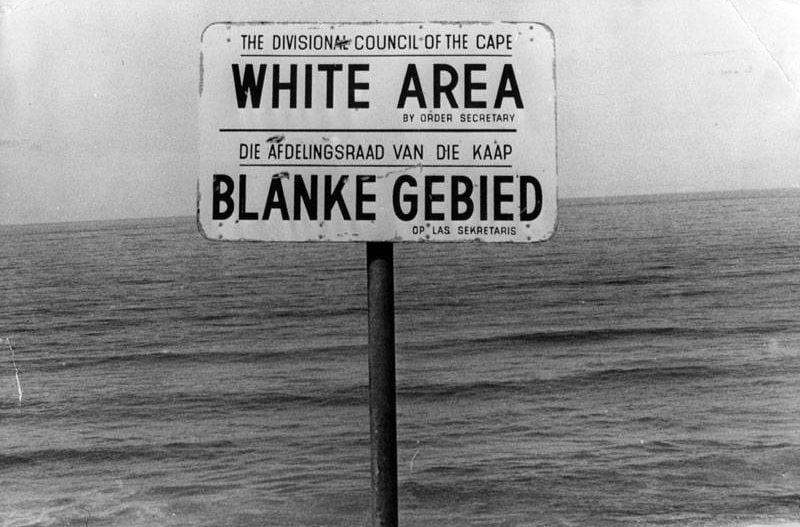a week ago, he South African Thabiso Danca, 25, wanted to enter Hank’s Olde Irish pub in Cape Town. But the security guards did not let him, arguing that black customers could only enter accompanied by a white person.
The fact, which seems taken from the tunnel of time, has provoked outrage in a country that still has fresh memories of institutionalized racial discrimination, known as apartheid.
“It is appalling and outrageous that apartheid trends in South Africa continue to rear their ugly head”Cabinet spokeswoman Phumla Williams lamented in a statement.
This incident came to light after a video showing Christopher Logan, a white friend of Danca’s, fighting with the bar owner went viral.
This racist was caught with his pants down. pic.twitter.com/UceK9n62sd
—Daniel Marven (@danielmarven) December 4, 2022
Although segregation officially ended in 1994, racism has not disappeared from society, which remains widely divided.
Some figures are illuminating: 64% of the black population lives in poverty, while only 1% of whites are considered pooraccording to a 2021 investigation by the South African Human Rights Commission.
Considering that the 80% of the South African population is black, and only 7.8% is whitethe disproportion is pressing.
An example of what is still happening in the country can be seen in this Vox video, which shows the differences in an area of Cape Town divided only by a road between a white and a black district:
inequalities
The regimen of apartheidestablished in the 1950s, legalized racism and inequality between blacks and whites in the country, a system against which thousands of South Africans fought and lost their lives, and which kept Nelson Mandela in jail for decades.
Mandela himself, when he won the country’s first democratic elections in 1994, said that erasing the traces that racism left in society would not be easy.
However, almost three decades later progress has been very slow. The black population continues to suffer deep inequalities and have far fewer opportunities to improve their quality of life than the white population, who also continue to control most of the country’s companies, in addition to ownership of vast hectares of land.
Currently, whites own 73% of the country’s land, while black South Africans own just 4%according to an investigation published by the Turkish agency Anadolu.
“We never dismantled apartheid”has said the renowned South African economist Ayabonga Cawe.

And one of the aspects that is still valid is racial categorization, established in the 50s, and -according to the BBC- it was the cornerstone of apartheid politics, which divided the population into four large groups: whites, Africans, of color (mestizos) and Indians.
Although the Population Registration Law was repealed in 1991, when the regulations that supported segregation began to be lifted, it has continued to be used by successive governments in order to collect data and analyze inequalities and lack of opportunities between different groups. racial.
But the numbers only continue to show what, in practice, has not yet changed: that black South Africans have fewer options in a country that remains mired in corruption and deep insecurity.
Source: Elcomercio
I am Jack Morton and I work in 24 News Recorder. I mostly cover world news and I have also authored 24 news recorder. I find this work highly interesting and it allows me to keep up with current events happening around the world.

:quality(75)/cloudfront-us-east-1.images.arcpublishing.com/elcomercio/XHCFJDUC55DTXBR464MIKYL6N4.JPG)





